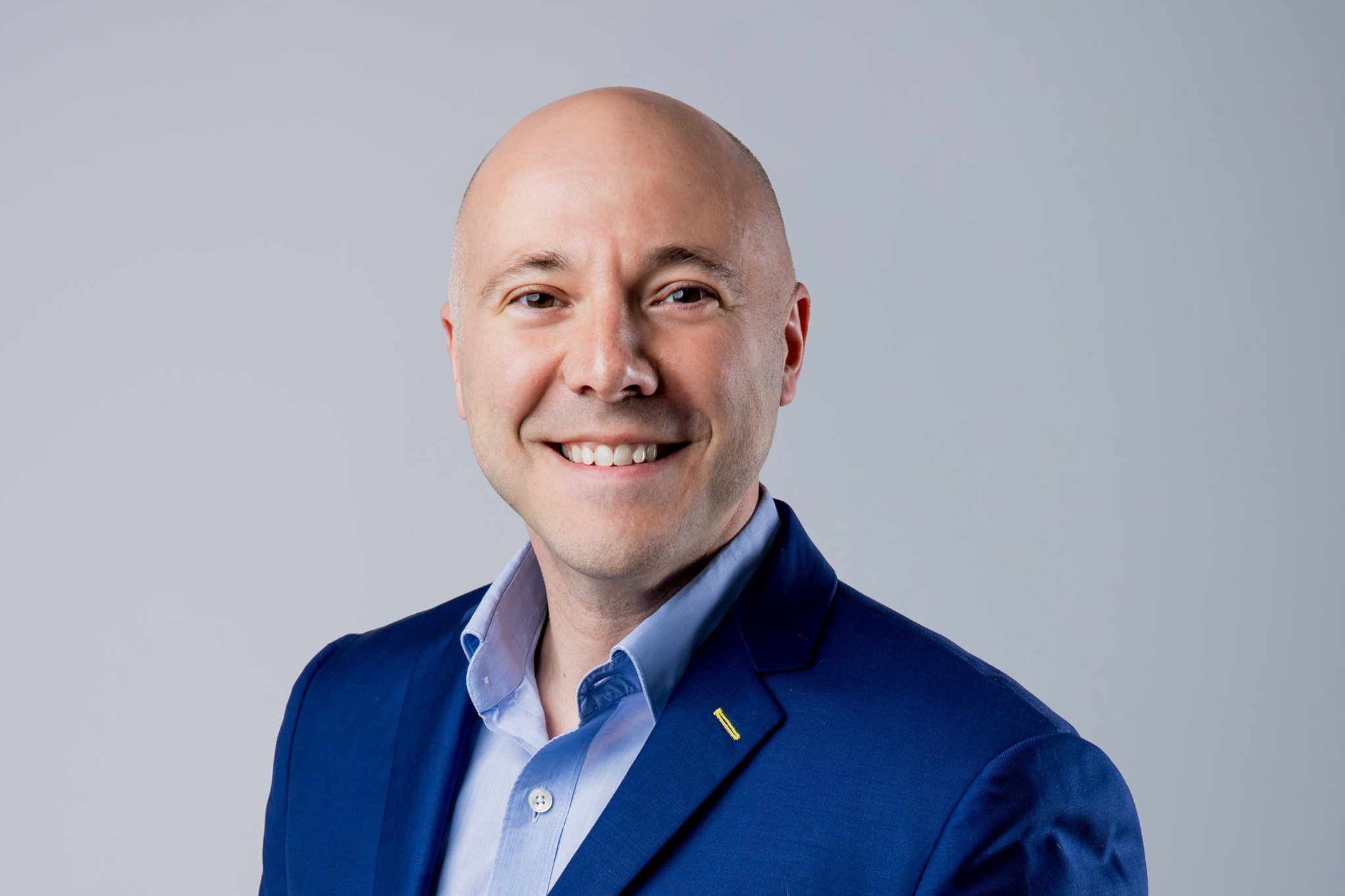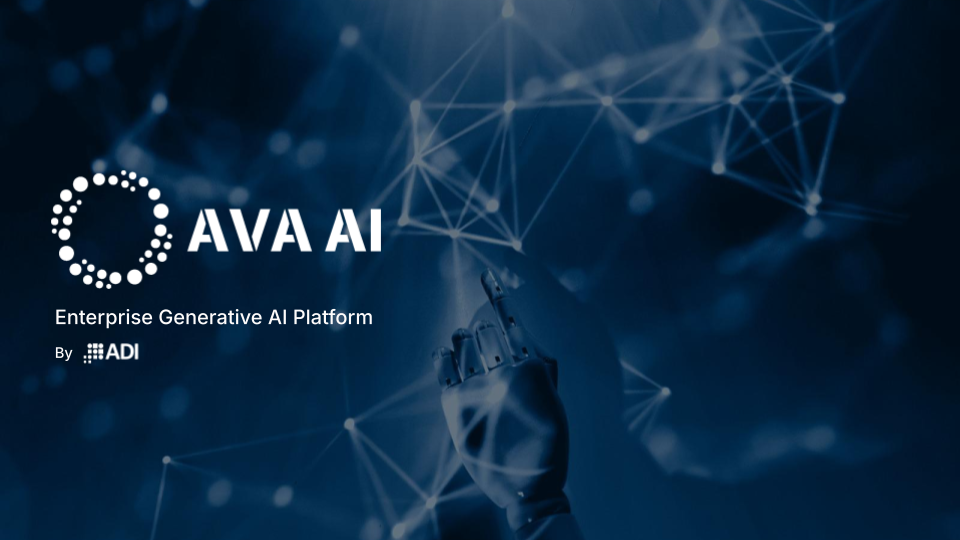
Aboitiz taps online sleuth for AI offensive
‘The Philippines I think is an exciting market because you have this entrepreneurial spirit that feels like it’s part of Filipino DNA. It’s the market where everyone’s keen to try everything.’
The advent of artificial intelligence (AI) opened up opportunities for various industries, including banks and other financial institutions as the technology enables alternative credit scoring for consumers and entrepreneurs.
With a projected higher economic growth toward an upper middle-income status, Aboitiz Data Innovation (ADI), an artificial intelligence and data science service provider, is ramping up efforts to help Filipinos build wealth and gain assets through right-sized loans and accommodating loan terms through chief commercial officer Guy Sheppard’s leadership.
Through ADI’s cybersecurity tools and literacy projects, Sheppard also assures lenders can avoid scammers and money laundering agents.
“The Philippines I think is an exciting market because you have this entrepreneurial spirit that feels like it’s part of Filipino DNA. It’s the market where everyone’s keen to try everything,” he told DAILY TRIBUNE in a remote interview.
He said ADI found that 10 percent to 20 percent of borrowers, including starting entrepreneurs, are usually rejected by traditional banks despite their financial capabilities based on ADI’s alternative credit scoring models.
The company uses over 900 data points other than the clients’ credit histories to assess their financial capacities.
“Alternative scoring is very different, and it was built out of rejected customers because they didn’t have the right collateral or the right track record,” Sheppard said.
ADI is part of the Aboitiz Group, which owns the Union Bank of the Philippines (UnionBank) and its digital bank Union Digital Bank.
ADI also serves other financial and non-financial companies in Southeast Asia.
Sheppard stressed many banks often rely more heavily on past transactions than the future income of new entrepreneurs, resulting in missed business loan opportunities.
“Think about digital resellers. This is an individual that is now trying to set up a business account for a revolving credit line to be able to buy goods before getting paid by customers,” he said.
“Those sorts of people transitioning I would assume would have personal accounts and don’t have that business background to be able to back it up,” Sheppard continued.
To determine the entrepreneurs’ potential incomes, he said ADI collects data on their possible customers and the quality of the internet plan the entrepreneurs consume.
Credit scoring via anonymity
“We can correlate items like high internet bandwidth, proximity to an embassy, central business district, or a major point of travel, infrastructure like a freeway, a train station, or a bus depot,” Sheppard said.
He shared that ADI also creates “anonymized” borrowers and profiles to determine the effectiveness of alternative credit scoring.
Sheppard said ADI ensures the highest overall value to customers as it analyzes their biggest needs based on target customers, current and future financial capabilities, and skill levels of their staff.
“In some cases, we have had our share of success with commercial models, so don’t judge me on my menu but judge me on the last dinner that I served to you,” he said.
Due to the trust of clients in ADI, the company is also securing partnerships with companies in Singapore, Hong Kong, Thailand, Malaysia and Azerbaijan.
Cybersecurity efforts
Global business consultancy McKinsey expects the domestic AI industry to gain P2.6 trillion in revenues by 2030 as Filipinos increasingly use digital services.
While such AI offers customers convenience, such as faster transactions and customized products, Sheppard said AI can also create fake identities and fake financial transactions to steal money from legitimate customers.
To prevent criminals from succeeding, ADI integrates its alert system into lenders’ systems.
“Fraudsters may behave differently. We developed an alert management dashboard showing high and low priority levels,” Sheppard said.
“An investigator can click into it and see all of the contributing factors that generated that alert, so that the investigator, quite literally at their fingertips, can look into them,” he added.
Sheppard said the lender can then call the customer and freeze the account.
He added that ADI also makes customer profiles who are most susceptible to fraud so lenders can create financial literacy projects more effectively.
“A lot of the assumptions people had been that these would be the elderly because they were less tech-savvy. It was the youngest generation or new-to-bank customers that were the most susceptible because they are very comfortable shopping online,” Sheppard said.
AI-generated videos have also been circulating to spread harmful messages or, in banking, confirm financial transactions through virtual meetings with financial executives.
However, using the same technology, Sheppard said banking industry players can detect nuances in the way fraudsters communicate.
“You know maybe there’s someone’s hand behind my back forcing me to withdraw my life savings or what have you,” he stressed.
“Some AI programs can detect levels of stress anxiety or unusual emotional reactions like speech intonation or levels of pupil dilation depending upon what type of sensors you have or if I’m not looking directly at the camera,” Sheppard explained.
ADI has been a strong supporter of the government’s goal of digitalizing the country for financial inclusion and safe banking through its AI summits, he said.
Magnetizing market
“Part of my role, having spent 16 years in financial crime, is to magnetize the market, to be able to share what we’re doing, and to start brokering those initial conversations with senior management of other firms and other stakeholders,” Sheppard said.
Last year, ADI co-organized the country’s first AI Summit attended by over 1,000 people at the Marriott Hotel in Pasay City.
“Financial crime is a game of cat and mouse, where criminals adapt, and then obviously financial services teams and technologists like ADI are looking to find new ways to address this new threat,” Sheppard said.
(The article was originally published by Kathryn Jose on Daily Tribune.)


